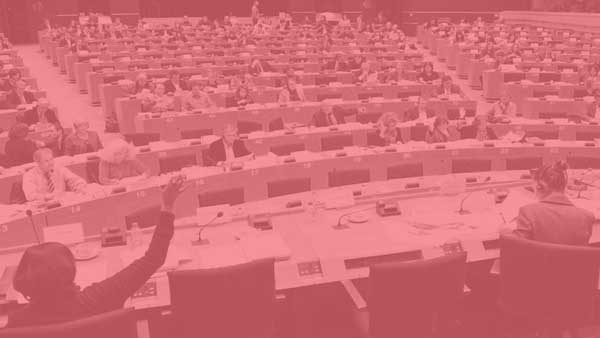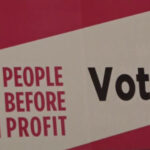The EU is an executive-run institution, where democratically elected representatives have little or no power. A member of the European Parliament cannot make a proposal for a legal change – unlike in the Dáil. Only the EU Commission can do that. The members of that commission are not elected and are unaccountable: they are often failed politicians appointed by the political elite in their own country.
They get an obscene salary of € 22,000 a month, which is what a young worker might receive in a year. On top of that, they get huge travel expenses, a low tax regime, a residency allowance of 15% of their salary, a family allowance and an entertainment allowance of €600 a month. The Irish Commissioner Phil Hogan, for example, claimed €15,000 in travel allowances for just two months.
This extravagant living means that EU Commissioners will invariably defend the privileged classes they mingle with.
When the EU proposes any measure, there is a long process of consultation with ‘advisory committees’ and ‘trialogues’, which are committees for horse trading with members of the European Parliament.
This shadowy process, which takes place away from the eyes of the public, is an ideal setting for corporate influence. There are 25,000 lobbyists at work in Brussels, the majority working for big corporations. Corporations like Shell, Google and General Electric spend between €4 and €5 million a year on these lobbying operations. They infiltrate and dominate the EU’s advisory bodies, which play a big role in shaping directives.
The other main decision-making body is the EU Council, composed of the heads of government, the presidents of the EU Council and Commission and the High Representative for Foreign Affairs and Security Policy. This body often takes control of the EU in crisis situations.
No minutes are kept of their decision-making. We never know, for example, how Leo Varadkar voted or what exact ‘consensus’ he accepted. In reality, behind the Council stand more shadowy committees which do deals behind closed doors.
People Before Profit is determined to challenge this lack of democracy. We will push for:
- A complete ban on corporate lobbyists – their Brussels offices should be closed down, and EU officials should no longer deal with registered professional lobbyists;
- An end to advisory committees that are dominated by big business;
- EU Commissioners to be on an average EU wage – and to be elected directly in their country;
- National parliaments to be given the right to mandate representatives on how to vote on key decisions in EU institutions;
- The decision-making of the EU Council to be transparent, with voting records published after each meeting;
- That anyone standing for the EU Parliament publish a full manifesto of their policies – and report to the Dáil twice a year on how they voted on the various issues;
- For opposition to repression – to support the right of people in Catalonia to self determination.












